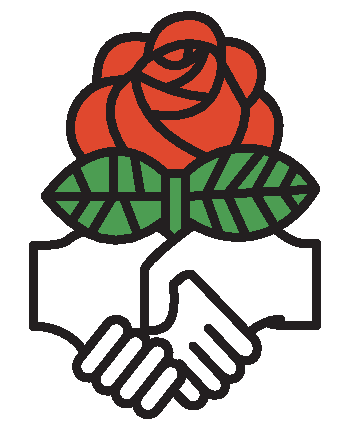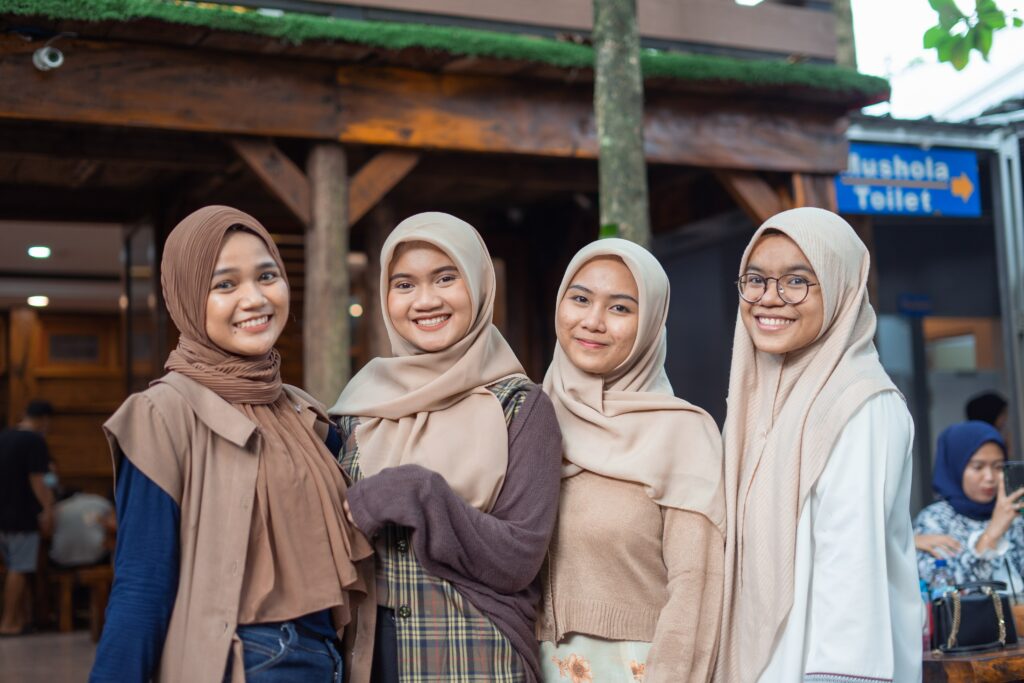Women and the Globalisation of the World Economy
Rome, Italy, 18-19 January 1997
Resolution
In today’s world women are playing increasingly indispensable roles in international, national and household economies, but they still have a disadvantaged economic position compared to men.
The new opportunities offered by globalisation will not be fostered if women, new actors on the world scene, do not play key roles in the economy, in social and political life and in the family. The Beijing Conference stressed the growing awareness of the leading role of women and declared that women’s rights are human rights. A new balance of power and resources is needed if we want to prevent the new autonomy and freedom from resulting in worsening conditions for women and quality of life for all.
The rise of neo-liberalism and the free market philosophy which see society, both domestic and international, primarily as a market, where everyone is both a producer and a consumer, pose a direct threat to equality and social justice. A deregulated market economy which has no regard for social or environmental concerns cannot promote global economic and social well-being and will fail to protect the environment and to ensure sustainable development. Neo-liberalism increasingly threatens women’s hard won rights, particularly the right to education, to gainful employment and to health. Neo-liberalism likewise results in the weakening of people’s democratic gains as states continue to give political concessions in the pursuit of more foreign investment.
Today globalisation is being led by a few hundred transnational corporations, which have economies larger than many national economies. Not subject to national regulation, these increasingly important transnational corporations disregard human and labour rights and the environment in their quest for higher profits. More and more they are shaping global work, finance, consumption and culture. Rarely do women play any role in their decision making, but often women are their victims.
In both the developing and developed world there is growing poverty; the gap between rich and poor continues to increase, both between countries and within countries. Most of the poor are women as they are the primary victims of exploitation and marginalisation and educating and training women and girls especially in non-traditional work is the key to their economic development. Targeting resources at women by recognising their right to health, education and training, by giving them full access to economic resources, and promoting gender-balance in decision-making, is essential in order to overcome poverty.
The Euro-Mediterranean initiative which was launched in Barcelona in 1995 is an economic forum which, in order to be equal to competition with other blocks, must work for a greater involvement of women. They constitute indisputable human and economic capital which must be judiciously mobilised.
In Africa, women produce around 80 per cent of the food and constitute more than half of small-scale farmers and provide about three-quarters of the workforce in food production and processing. But women still lack access to land. Without secure land ownership rights, they are unable to obtain credit and support for production.
In Algeria and in countries where there is war, violence and extremism of any sort women are the primary victims of atrocities. The very heavy economic consequences lead to unacceptable levels of distress and poverty. Structural adjustment imposed on certain countries by international institutions (IMF etc), the harsh transition to a ‘unregulated’ market economy instead of a ‘social’ market economy, add their disastrous effects to the situation.
In Asia and Latin America the dominance of neo-liberal policies has led to a burgeoning informal sector, dominated by women and children, where flexible working practices are largely unprotected by labour and health regulations. So-called efficiency and profit are pursued at enormous social cost.
In many developing countries, where there is an acute shortage of gainful employment opportunities, millions of women opt for migrant work, particularly in areas that make them more vulnerable to emotional, psychological, physical and sexual violence. While these women significantly help their countries’ economies, they are not only blamed for the social costs of migration but are also largely left unprotected.
Deregulation and privatisation may increase efficiency in the production of goods and services, but also increase the risk of poverty. In much of the developed world, structural unemployment affects women in particular and they constitute the majority of low-paid, temporary and part-time workers and the long-term unemployed. For women in the former centrally planned economies, the transition to market economies has had a disproportionately negative impact on them, in terms of conditions of life and of higher rate and longer-term unemployment. Unemployment is not only a macroeconomic problem. The unemployed lose not only their means of support, but also part of their humanity and identity. Salaries are still often determined by gender rather than the skills required for the job, resulting in unequal pay for equal work. Women’s skills are a necessary resource for economic growth and development. Women must therefore be fully integrated into the labour market without any discrimination. Such integration requires adequate labour and social policies and investment of public and private resources in every field.
Institutions of the social state have become objects of attack and in many countries have been swept away by market ideology. Often, behind the need for an austerity programme, there lies an ideological antagonism to the welfare state. The cutting of government subsidies and social welfare provisions has hit women the hardest making it more difficult for them to escape poverty. The provision of education, housing, healthcare and childcare, lessen the economic burden on women and assist their economic independence.
The old social state was based on a patriarchal model. A new welfare state must now take into account the new conditions of the world economy and labour market, the changed role of women, the growing presence of immigrants, the need to include men in family responsibilities etc. Social rights should belong to the individual citizen and not be derived from family status. Active policies that provide women and men with increased choices for work and family life must be implemented in both public and private sectors.
Child labour is a product of poverty and is a global problem. UNICEF estimates there are 250 million children working world-wide, many in the sex trade and in bonded labour. Employers exploit children who represent cheap labour, often in hazardous conditions and those akin to slavery. Of particular interest is the phenomenon of feminisation of child labour which is becoming increasingly evident. We cannot wait for poverty to end before child labour is eliminated.
Socialists and social democrats must face the challenge of the interdependence of the modern world and offer a competing vision of globalisation which focuses on markets serving people and on the distribution of the world’s resources based on justice. Building a new contract between the genders must be a fundamental pillar of this challenge. Only in this way can socialists and social democrats undertake collective responsibility to ensure that globalisation becomes an instrument of development, peace and democracy.
Socialist International Women urgently calls on the trade union movement, both at national and international levels to actively work for the protection of the rights of those victimised by migrant, informal and flexible work. The eradication of child labour should also be among the movement’s priorities.
SIW calls on states to ratify the UN Convention on the Rights of Migrant Women Workers and their Families and to fulfill their commitments as enshrined in the documents of UN conferences such as the Fourth World Conference on Women, the World Summit on Social Development, the International Conference on Population and Development and the Conference on Human Rights. SIW calls for collective political action at different levels: supranational, national, local etc
- to adopt gender-sensitive policies and programmes of economic and social development at national and international level
- to balance inequality, injustice and insecurity produced by neo-liberal policies, reinforcing social rights and fighting against social exclusion;
- to redefine the international system of accounts to take into consideration women’s work, environmental protection and other social factors which do not now affect the gross national product and economic measures.
- to develop new and wider public policies to ensure conditions of equity, equal opportunities and social cohesion;
- to consolidate democracy and women’s equal participation in decision-making using quotas which have proved to be an effective means of promoting equality;
- to regulate transnational corporations to ensure the protection of labour rights and human rights, including explicitly women’s rights;
- to pursue international co-ordination of national economic policies in order to create new jobs and to uphold and protect workers’ rights;
- to promote growth and employment, whilst enhancing sustainable development and the protection of the environment;
- to design, implement and monitor effective legislation, codes, social security regulations, so as to ensure worldwide minimum standards of pay, working hours, labour rights and to end child labour;
- to promote economic policies to improve the employment and income of women in the formal and informal sectors and to ensure equal pay for equal work;
- to give women full and equal access to economic resources, to credit and the right to own land and to inherit;
- to restructure and target the allocation of public expenditure to promote women’s economic opportunities to education, training, the sciences and new technologies;
- to ensure that structural adjustment programmes do not lead to a reduction in education, training or health programmes and are based on advancing gender equality and the recognition of women’s economic contribution;
- to provide free and compulsory education for children;
- to give women full and equal access to education and training;
- to stimulate and assist fertility management programmes in order that women can secure their reproductive rights;
- to promote and develop the means by which women communicate and share information throughout the world, and within countries, in particular in impoverished countries.
Only solidarity amongst women will ensure that globalisation of the economy will promote social rights, conflict prevention and economic and social justice.

